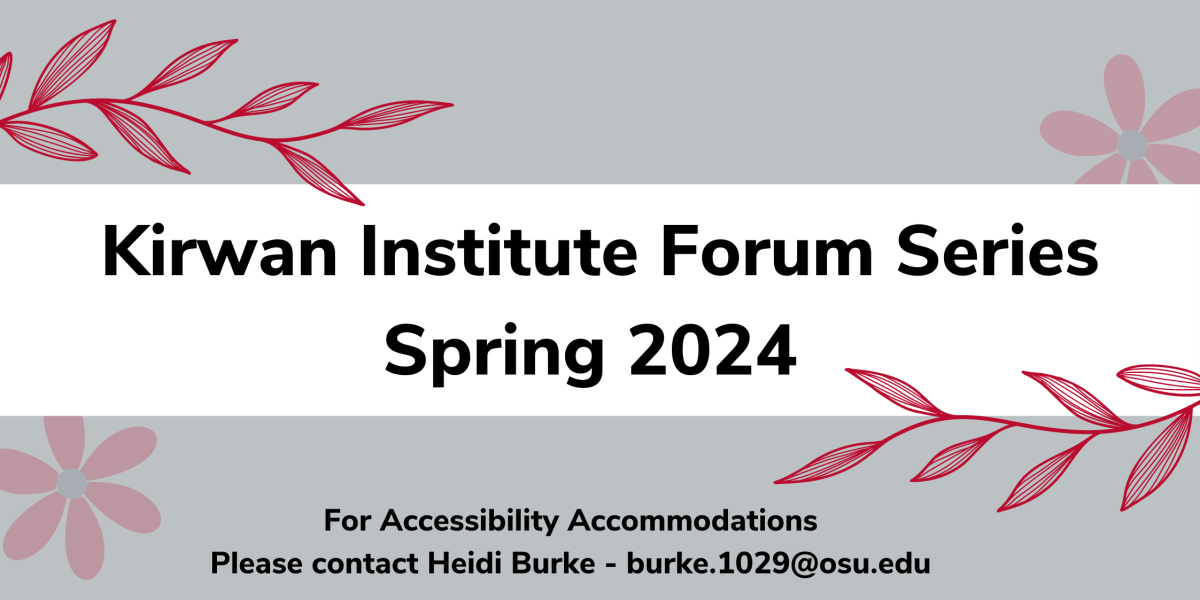This spring, the Kirwan Forum Series makes a return with co-sponsored events with The Ohio State University Center for Ethics and Human Value and others. For recording of the Kirwan Spring Forum Series, please see the article.
| Date | Title (Co Sponsor) | Speaker(s) |
Thursday, January 18th 2024
Forum RecordingRecording found here | Kamala Harris, Misogynoir, and Misinformation and From Descriptive Representatives to Identity Representatives
AbstractUsing Kamala Harris as a case study, this project, discusses the role of misogynoir in fueling misinformation and disinformation in digital spaces. Drawing from the case of Kamala Harris and other mixed race politicians, this forum proposes we move beyond descriptive representatives and toward identity representatives. | 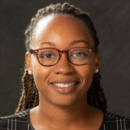
Dr. Brookyne Gipson, Assistant Professor of Communications at University of Illinois 
Dr. Danielle Lemi, Tower Center Fellow, Southern Methodist University |
* Friday, January 26th 2024 (In person only) Forum RecordingRecording found here
| How Racial Stereotypes Wrong: A Political Ethics of Belief
AbstractAs racial stereotypes are beliefs about contingent matters of fact (namely, the traits and tendencies of different "racial" groups), it is puzzling how they could be proper objects of moral condemnation, resentment, and blame. Beliefs are not actions. They cannot be formed at will. And their assessment is usually taken to be a matter of their truth or falsity, not their moral permissibility or wrongfulness. This lecture attempts to specify where the moral problems with racial stereotypes lie. It does so, in part, by arguing that there is an underappreciated political ethics that should guide belief formation and intergroup relations in societies that have been deeply shaped by racial injustice. Along the way, stereotypes are distinguished from similar and related phenomena, including group prejudice and implicit bias. Epistemic errors are disting | 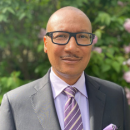
Dr. Tommie Shelby, Caldwell Titcomb Professor of African and African American Studies and of Philosophy at Harvard University |
Thursday, February 1st 2024
Forum RecordingRecording found here | The Racial Frontier: Biracials, Machine Learning, and the Future of Racial Group Boundaries
AbstractResearchers often examine whether Biracials are more similar to either their lower or higher status racial groups to make inferences about the racial hierarchy. The former circumstance implies stable racial group boundaries via hypodescent, while the latter augurs assimilation for racial minorities and waning intergroup prejudice. This study develops machine learning algorithms using data on individuals' political characteristics to predict single-race ancestry. The algorithms are then applied to Biracials to determine how likely they are to be classified with either of their single-race groups in order to empirically pinpoint their theoretical placement between them. Leveraging symbolic politics and impressionable-years hypotheses positing stable racial affect beyond early-adulthood, the algorithms are applied separately to generational cohorts to examine whether racial boundaries are shifting overtime. Although Black ancestry continues to possess the most gravity, overtime all Biracial subgroups are becoming increasingly similar to their higher status racial group, indicating decreasing adherence to hypodescent. | 
Dr. Greg Leslie, Assistant Professor and Political Psychologist at The Ohio State University |
Wednesday, February 28th 2024 Forum RecordingRecording found here | Activating the Social Innovation Process: An application to align anti-racist practices in homeless services AbstractMost would agree that there are social problems that are getting worse despite many efforts to address them. Growing wealth and income inequality are common phenomena across the industrialized world. Reversing these trends in inequality will likely take fundamental changes to institutional environment in these countries and in the way that our global systems are organized. Climate change presents an existential threat to some countries and new opportunities and challenges for others. Coordination is essential to reduce the warming of the globe, yet difficult to secure. At the same time, individual countries face unique challenges where new approaches are needed. For example, the United States has experienced a dramatic rise in the number of people experiencing unsheltered homelessness and policy makers and practitioners are scrambling to develop solutions. In the face of global and local challenges, ‘Social Innovation’ has emerged as a framework to catalyze social change. Rarely has the social sector explicitly used innovation frameworks to address novel or entrenched problems. I argue that social innovation needs to be understood as an iterative, inclusive process that intends to achieve more effective and just solutions that address complex social problems. This includes strategies to imbed coproduction, experimentation, and scaling in order to disrupt the status quo and alter systems. In this forum, we will discuss what it necessary to activate social innovation and provide an application to our work in homeless services in Los Angeles. | 
Dr. Gary Painter, BEARE Chair and Professor of Real Estate at University of Cincinnati, Carl H. Lindner College of Business |
Thursday, March 28th 2024 Forum RecordingRecording found here. | Academics In Service of Good Governance: The LA Governance Reform Project | 
Dr. Raphe Sonenshein, Executive Director of the John Randolph Haynes and Dora Haynes Foundation in Los Angeles 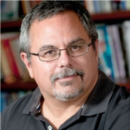
Dr. Gary Segura, Professor of Public Policy, Political Science, and Chicana/o Studies at UCLA. 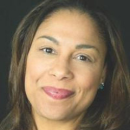
Dr. Ange-Marie Hancock, Executive Director of the Kirwan Institute at The Ohio State University |
Thursday, April 18th 2024 Race, Economic Opportunity, and Leadership Forum RecordingRecording found here | Americans’ (Mis)Perceptions of the Race and Gender Wealth Gap
AbstractRacial, gender, and intersectional race-gender disparities in wealth lead to unequal access to opportunities in the U.S., yet many Americans are largely unaware of these gaps and vastly underestimate their size. This project uses secondary data from national surveys, as well as novel data from online experiments, to examine these (mis)perceptions and their downstream consequences for individuals’ behavior and policy support. We also test the efficacy of several interventions to correct these misperceptions in order to understand how they might encourage Americans to take action and support wealth-equalizing policies. | 
Dr. Nicole Yadon, Associate Professor of Political Science at The Ohio State University
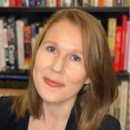
Lauren Valentino, Assistant Professor of Sociology at the University of North Carolina. |
Thursday, April 25th 2024 Race & Health Equity | Evaluation of Resource Utilization of Vulnerable Populations by a Midwestern Metropolitan Health Department during the COVID-19 Syndemic AbstractBackground and Purpose: One goal of most, if not all, public health departments during and after a pandemic should be to decrease health inequities in service and to improve long-term engagement and collaboration with racial/ethnic communities in their jurisdictions. This study reports on the external relationships with the racial/ethnic communities in a large mid-western municipality. There has been and continues to be a striking dichotomy in the large urban centers of the mid-west; while these cities might be considered prosperous, and well-educated, and progressive, some of these urban centers continue to present with the highest rates of chronic health conditions by census tract in the country. This study that evaluated the COVID-19 response in Black communities in a large midwestern urban center revealed several latent constructs that are operative and concordant in census tracts at risk for disparate health outcomes related to COVID-19 schema. The data demonstrates that the ability of health departments to utilize contemporary methodologies and analytics will facilitate identification of census tracts where differential adverse outcomes coexist. Methods: The methodology utilizes mixed methods combining quantitative and qualitative methods including spatial analysis methods, modeling in a geographic information system (GIS) environment, GIS-based multi-criterion decision analysis, principal component analysis, supervised and unsupervised clustering methodologies, and Public Health Exposome combinatorial analytics. Data collection further included interviews with key community leaders, former community health advisory committee members, current and former commissioners, and neighborhood liaisons from a broad spectrum of neighborhoods. Results: The results of the evaluation of the COVID-19 response in minority communities in this midwestern city revealed several latent constructs that are operative and concordant in census tracts at risk for disparate adverse outcomes related to COVID-19 schema. Comparisons of the US EPA EJSCREEN, the Environmental Burden Index, and the Health Opportunity Index were conducted to assess the efficacy of each as a planning tool for future COVID-19 emergency response planning. It was determined that the Health Opportunity Index is a better alternative to the Social Vulnerability Index and Toolkit previously sanctioned and utilized by the CDC. The Health Opportunity Index will provide state and local health departments with a more robust template and toolkit for examining COVID-19 outcomes in minority communities. Conclusions: Going forward, use of the Health Opportunity Index by policy makers will ensure that (1) communication channels between vulnerable minority populations and health departments are effective and reciprocal and (2) selected intervention sites are in optimal locations for accessibility, mobility, and connectivity that enable minority communities to utilize them effectively. These results also revealed that environmental public health practitioners, health systems, and community-based organizations often did not have the proper tools to understand the complex interaction of chemical and non-chemical stressors with the social determinants of health that are linked to poor health outcomes. | 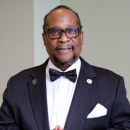
Dr. Darryl Hood, Professor and Dean’s Fellow Division of Environmental Health Sciences and College of Public Health at The Ohio State University 
Dr. Karen Patricia Williams, Distinguished Professor of Women’s Health, Martha S. Pitzer Center for Women, Children, and Youth at The Ohio State University. |
Thursday, May 16th 2024 Race & Health Equity | The Healthy Community Center Improves Social Determinants of Health on the Near East Side AbstractJoin us for a discussion that starts with the connection between socioeconomic status and cardiovascular health. We found that this connection is dependent upon sex and race, with some groups benefiting more than others from higher socioeconomic status. These results highlight the importance other social determinants of cardiovascular health, which are not a part of socioeconomic status, and underscore the work the Ohio State University Wexner Medical Center is doing at the Healthy Community Center on the Near East Side to address these social determinants. | 
Dr. Joshua Joseph, Wexner Medical Center 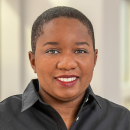
Dr. Amaris Williams, Post-Doctoral Researcher, ACCELERATE Lab 
Javonte McDonald, Director, Healthy Community Center |
